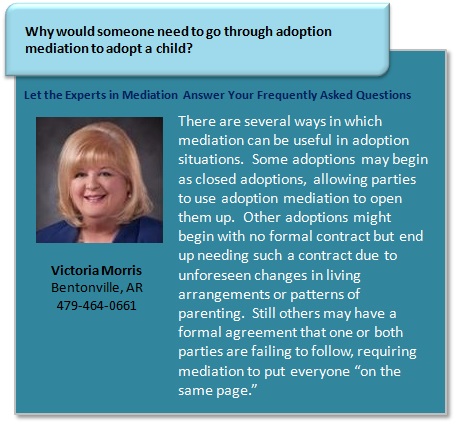
Image courtesy of patrisyu / freedigitalphotos.net
Adoption mediation is a process in which birth parents and adopting parents can determine the details of the adoption arrangement and create a legal contract stating those details. In adoption mediation, a trained, neutral, third-party mediator acts as facilitator to the discussion, using his or her knowledge of local, state and federal adoption laws to make the process of reaching contractual agreement as smooth as possible.
There are several ways in which mediation can be useful in adoption situations. Some adoptions may begin as closed adoptions, allowing parties to use adoption mediation to open them up. Other adoptions might begin with no formal contract but end up needing such a contract due to unforeseen changes in living arrangements or patterns of parenting. Still others may have a formal agreement that one or both parties are failing to follow, requiring mediation to put everyone “on the same page.”
Regardless of the scope and depth of a particular adoption arrangement, adoption mediation is a highly successful and cost-effective way to reach a legal settlement concerning an adoption. Adoption mediation is an informal process and is much less stressful than having to appear in court. Adoption mediation also allows the details of the adoption contract to be completely confidential, since mediation does not make details of the dispute or contract a matter of public record like going to court does.
If you are considering adoption, an adoption mediator will be able to help guide you through the process of reaching a formalized agreement between all involved parties. If that formalized agreement needs to be changed in the future for whatever reason, adoption mediation can also be used as a venue to make necessary changes to the paperwork.
The important thing to keep in mind about adoption mediation is that all parties remain in complete control of the outcome of the mediation session. If one or more parties do not agree with the terms of the adoption agreement, that party has the right to reject it and move the matter to the courts in the event that an agreement cannot be reached through mediation.







